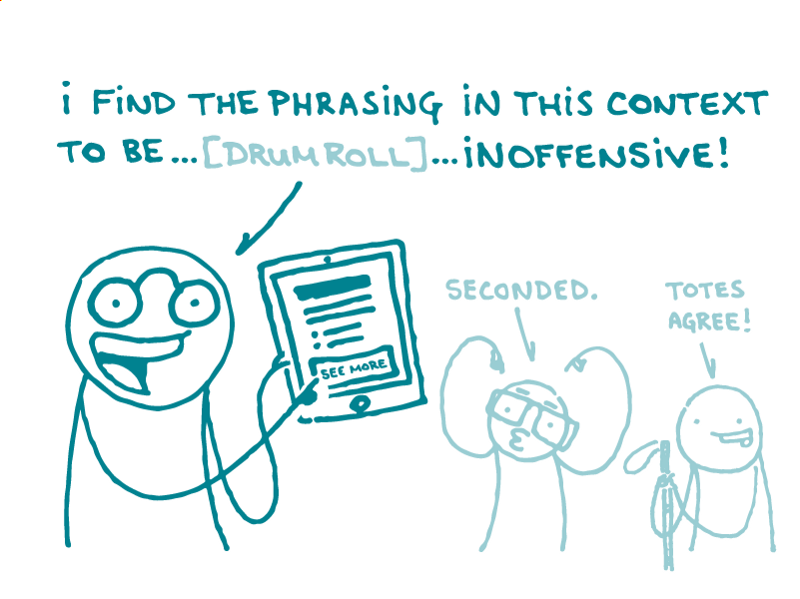
Here at We ❤ Health Literacy Headquarters, we try to make all our health information accessible for people with vision loss or blindness. And that doesn’t just mean designing web content to work with screen readers — it means thinking critically about the language these users see online. Oops! There we go using a vision-related word where it doesn’t belong… or does it?
The English language (and the English-language internet) is chock full of these vision-related terms. So this week, we’re teasing out whether links that invite users to “see more posts” are equally inviting for people with vision differences.
Etiquette guides for interacting with people who are blind tend to stress that words like “see” and “look” are fine to use in conversation. But our research didn’t turn up any evidence-based guidance on using these words in web content — so, dear readers, we took to Twitter to find out what real-life users had to say.
And, drumroll please… the folks with vision loss and blindness who responded to our (very unscientific) poll didn’t have strong feelings about vision-related words in links.
Online, people tend to read words like “see” as signposts that show them where to click — not references to physical sight. Using these words in links is an accepted convention of web content, and trying to avoid them is likely to get awkward. (“Perceive more posts” doesn’t have quite the same ring to it, hey?)
Of course, language and web best practices are always evolving — and different people with vision loss may have different preferences about this stuff. All the more reason to keep asking questions and, as always, test your materials with your audience!
The bottom line: It’s okay to use vision-related words like “see” in links. And if you’re wondering what language people prefer, just ask!
Browse recent posts